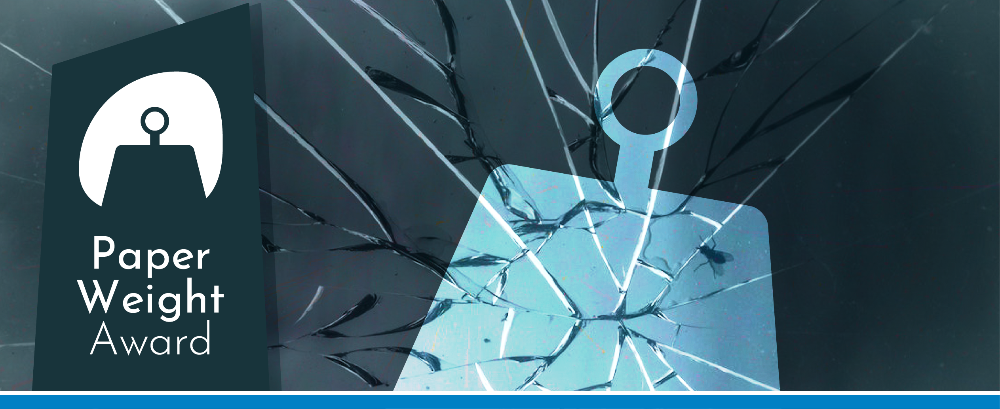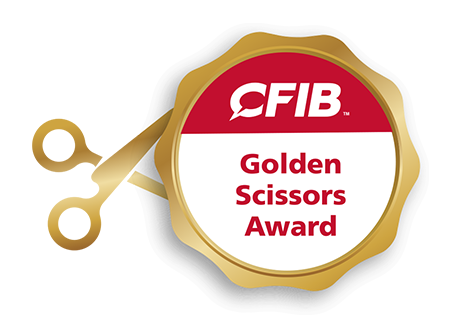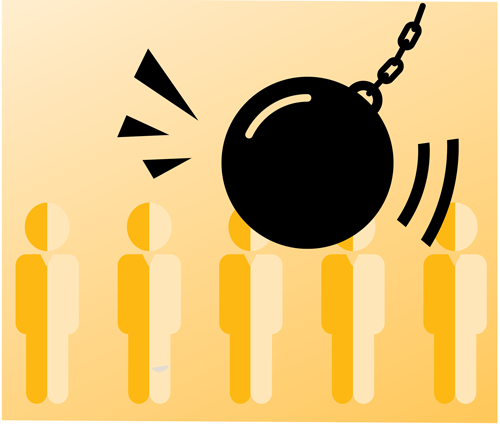CFIB’s Red Tape Awareness Week™ sheds light on the confusing rules and regulations, administrative obstacles, excessive paper burden, and poor customer service Canadians face every day from all levels of government. Our goal is to raise awareness about the red tape challenges that currently exist with politicians and policy makers to encourage positive changes that will boost productivity, improve affordability, and create a landscape where small businesses can thrive.
For our 16th year, from January 27th –31st , CFIB will highlight the impact of red tape on both business owners and everyday Canadians through a new report looking at the cost of compliance in Canada, an update on our permitting work from 2024, and our annual Golden Scissors, Paper Weight awards, and Red Tape Report Card.
2025 Red Tape Awareness Week Challenge
CFIB is challenging every government in Canada (federal, provincial/territorial and municipal) to publish all permit, form and application wait times, and to implement a service standard associated with each.
For 15 years, Red Tape Awareness Week™ has shed light on the confusing rules and regulations, administrative obstacles, excessive paper burden, and poor customer service Canadians face every day from all levels of government. From January 29 – February 2, CFIB will highlight the impact of red tape on both business owners and everyday Canadians through our Golden Scissors and Paper Weight awards, our annual Red Tape Report Card, and other red tape research. Our goal is to raise awareness about the red tape challenges that currently exist with politicians and policy makers to encourage positive changes that will make life simpler for Canadians and create a landscape where small businesses can thrive.
Do you have a red tape concern that you want government to fix? CFIB has successfully advocated for many Canadian governments to create a reporting mechanism where citizens and business owners can share their #RedTape headaches.
Take your #RedTape concerns straight to government!
Canada’s Red Tape Report: The cost of regulation to small business
Did you know small business owners lose approximately 32 work days every year to red tape? As of 2024, the combined cost of regulation from all three levels of government on Canadian businesses reached over $51 billion. Red tape accounts for nearly $18 billion (35%).
By reducing red tape, governments can give small businesses 268 million hours back – the equivalent of 137,000 full-time jobs.
Learn how red tape ties up small business owners and what governments can reduce these costs in our new report!
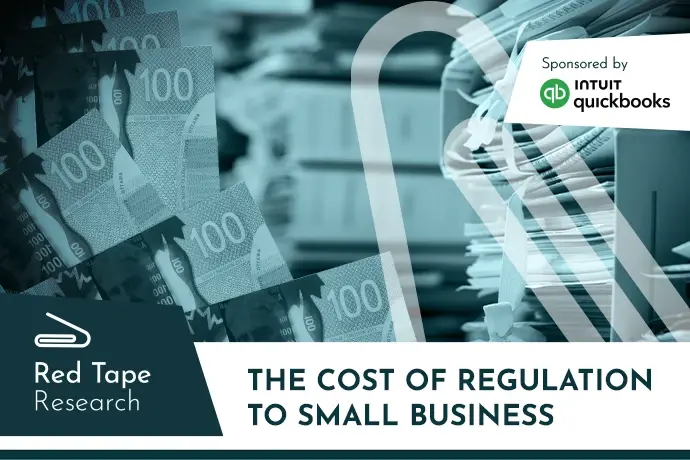
See the Grades
Each year CFIB grades the provinces and the federal government on their red tape reduction efforts. Check out how each jurisdiction measures up!
Who is best in class and who hasn’t been doing their homework?
Check out the grades in our 2025 Red Tape Report Card!
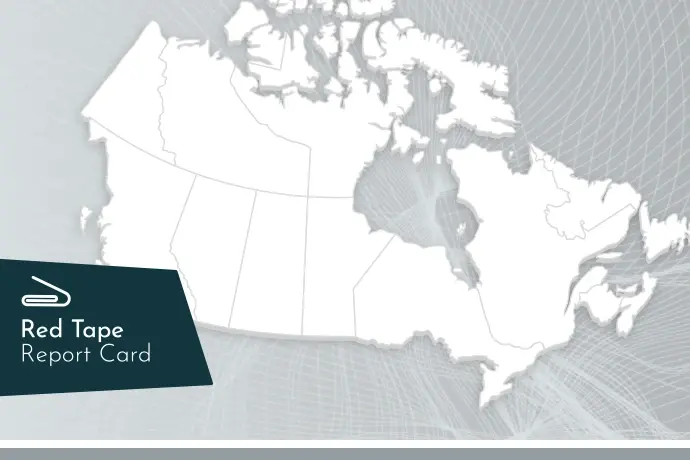
Breaking Ground: A jurisdictional update on housing initiatives to reduce red tape
Canada is facing a housing shortage. Reducing red tape around building is one way to help combat the shortage. Our latest report spotlights governments that accepted CFIB’s challenge and took on initiatives to reduce housing red tape.
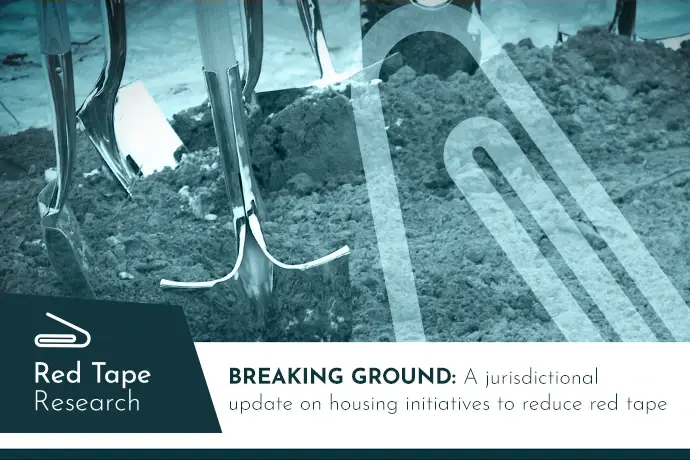
Patients Before Paperwork
Did you know Canadian physicians spend an estimated 18.5 million hours on unnecessary paperwork every year? Reducing that burden by just 10% would free up the equivalent of 5.5 million patient visits.
New report spotlights governments that accepted CFIB’s challenge to reduce red tape in health care.
2024 report now available!

See the Grades
Each year CFIB grades the provinces and the federal government on their red tape reduction efforts. Check out how each jurisdiction measures up!
2024 Red Tape Report Card now available!
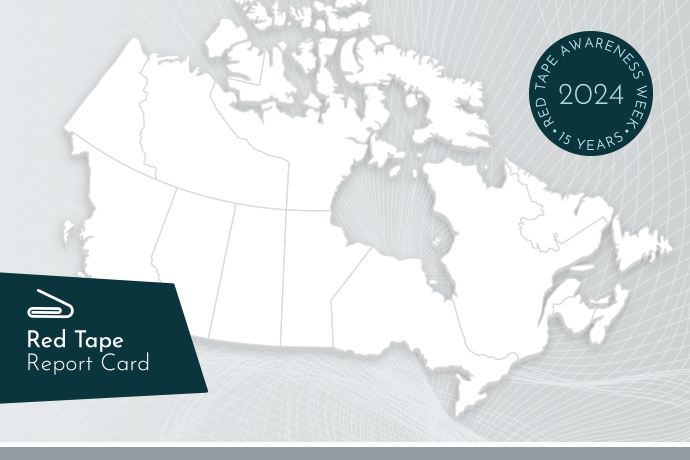
Flushing out the Nonsense
Canada is facing a housing shortage. Reducing red tape around building is one way to help combat the shortage. In our latest report, CFIB examines permitting costs and requirements for upgrading a powder room to a full bathroom in 12 Canadian municipalities, highlighting best practices and areas for improvement.


Healthcare Report
Did you know doctors spend an estimated 18.5 million hours on paperwork every year? Reducing that burden by just 10% would free up the equivalent of 5.5 million patient visits! Check out our groundbreaking report Patients over Paperwork for more on cutting red tape in the healthcare system.
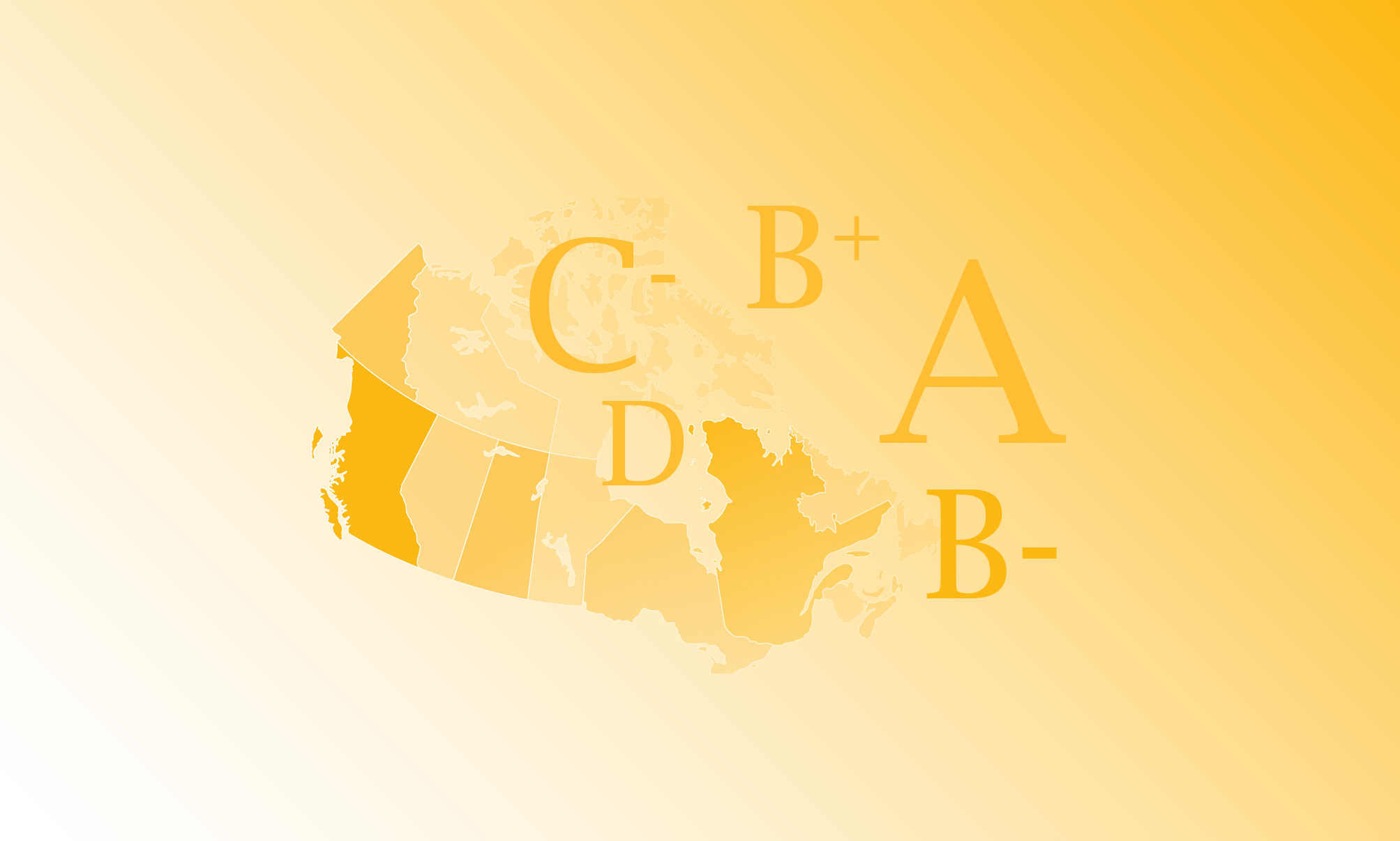
See the Grades
The Grades are in! Check out which governments are leaders in cutting red tape and which ones are in detention in our 2023 Red Tape Report Card!
Learn More About the #RedTape Award Winners:
For the first time in CFIB’s history there is no Golden Scissors Award winner. Check out which policies are “ones to watch” plus an honourable mention.
Manitoba abandons its red tape accountability legislation; the Government of Canada’s sales tax nightmare before Christmas; a Quebec municipality’s “fun police”; and more in this year’s paperweight awards highlighting the most ridiculous red tape examples across the country.
Learn More About #RedTape:
The Golden Scissors Award is a prestigious national CFIB award that recognizes individuals or teams who have successfully motivated others to take action or produced meaningful, positive results in cutting red tape. Find out who is taking CFIB’s top prize for cutting red tape!
Remember those lines that stretched city blocks outside of passport offices? 80% of passport applicants experienced frustrations, from multiple trips to Service Canada to taking time off work and delaying travel plans. The government of Canada’s passport mess is this year’s paperweight award winner.
CFIB has been putting your red tape issues in the spotlight and holding governments accountable through the years. From previous Red Tape reports, research and awards, you will see how CFIB has been fighting to combat red tape.
Read Our Latest on #RedTape
- All
Read Our Latest on #RedTape
- All
Read Our Latest on #RedTape 2023
- All
Frequently Asked Questions
1. What is Red Tape Awareness Week?
Red tape reduction is consistently cited as a top three priority for small business owners. Each year, we dedicate one week in January to raise public awareness about how excessive regulations and red tape affect business owners and everyday citizens, and challenge politicians and bureaucrats across the country to take action to remove unnecessary burden. CFIB first launched Red Tape Awareness Week 15 years ago.
This year, Red Tape Awareness Week takes place January 27 - January 31, 2025.
2. What is “red tape”?
Red tape refers to government laws, policies and rules that are excessive, duplicative and/or unnecessary, and generate a financial or time cost to comply with.
While government spending and taxes get a lot of scrutiny on a regular basis, regulation is too often an afterthought. Red Tape Awareness Week attempts to rectify that by putting a spotlight on the laws, rules and regulations that govern our everyday lives to ensure they deliver the desired results while minimizing wasted time, money and stress for those that are complying.
Regulatory modernization means staying on top of outdated or redundant rules. Eliminating them where possible and improving them where necessary, as well as ensuring that they are simple to understand and easy to follow.
3. What is this year’s theme?
Red Tape Awareness Week 2025 will focus on prioritizing red tape reduction to tackle the productivity crisis and improve affordability for Canadians.
4. What does this year’s lineup include?
The 16th annual Red Tape Awareness Week lineup includes a new report on the cost of regulation; the announcement of the Paperweight Award “winner”; the 2025 Red Tape Report Card; an update on the 2024 red tape challenge “Flushing out the Nonsense”; and the Golden Scissors Award winner announcement.
5. What is the Red Tape Report Card?
The centerpiece of Red Tape Awareness Week is our Red Tape Report Card.
The report card grades the federal and provincial governments in three key categories: regulatory accountability (are governments measuring and tracking their regulations?); regulatory burden (how many regulations are there?); and regulatory leadership (is red tape reduction a clear priority for the government?).
CFIB wants to ensure governments are actively progressing and improving in these categories. In some provinces that means asking governments that do not know how many rules and regulations exist to begin counting them. In provinces that have that covered, it may mean focusing on reducing that number where possible or improving leadership by creating dedicated ministries or offices for red tape reduction. Overall, we are looking to all Canadian governments to reduce the regulatory burden on both small businesses and citizens.
6. How are governments graded?
The 2024 Red Tape Report Card uses an index approach to measure and rank the regulatory performance of Canada’s governments based on three priority areas of regulatory activity (or subindexes), which encompass 12 indicators. These indicators represent either a composite of multiple scores, or a stand-alone value. The methodology for the 2024 Red Tape Report Card will mostly mirror the methodology used in the 2023 version.
For more details on how scores were calculated, refer to the methodology section in appendix A of the report.
7. What is the Golden Scissors Award?
The Golden Scissors Award is a prestigious CFIB award that recognizes individuals or teams who have successfully motivated others to take action or produced meaningful, positive results in cutting red tape.
8. What is the Paperweight Award?
The Paperweight Award is an award no one wants to win. It shines light on some of the worst examples of useless and excessive regulations for business owners across the country.
9. How are winners decided?
For the Paperweight Award, CFIB looks at news stories, member feedback and examples raised by governments and opposition parties as being particularly bad instances of red tape. Internal deliberation determines which example or examples win and are featured as Paperweight Award winners.
The Golden Scissors Award works the same way (though rarely via examples from opposition parties), and CFIB assesses internally which examples had the biggest impact in reducing red tape.
10. Who won the awards last year?
The Government of Canada (Canada Border Services Agency) took home the Paperweight Award for hitting a small costume shop with a wardrobe full of paperwork and fees all because of two small word changes, creating an unlevel playing field between big and small businesses. Read more at cfib.ca/paperweight.
The Council of the Atlantic Premiers received the Golden Scissors Award for making physician red tape reduction a priority through its Atlantic Physician Registry, saving physicians time, providing a better work-life balance, and opening space for additional patient visits. Read more at cfib.ca/goldenscissors.
11. Where can I learn more about Red Tape Awareness Week?
Visit cfib.ca/redtape and follow CFIB’s social media channels to stay up to date on our initiatives.



